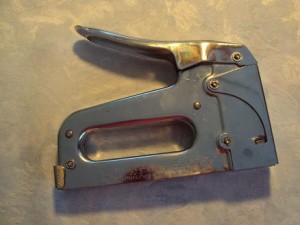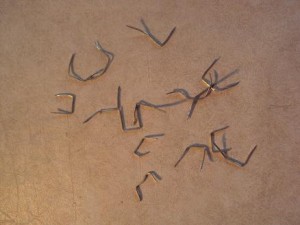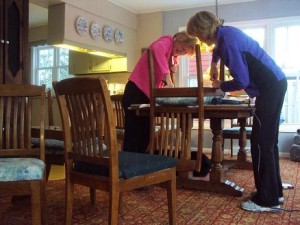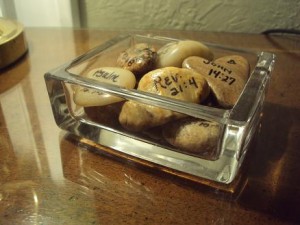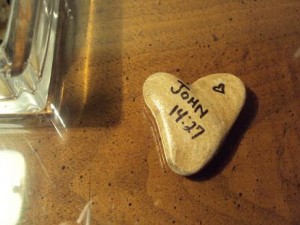This afternoon Mary and I talked about “the ravages of time” on our old faces and the magic of plastic surgery. Not that we’d do it, even though the mirror says we should. (It’s easier just to avoid the mirrors.) But this afternoon we did get involved in a face lift of a different sort. The two of us put fresh upholstery on eight dining room chairs, a simple way to “lift” a room.
To be successful, however, requires the right tools. Factory-tightened screws can be difficult to loosen, and succeeding assumes you’ve got the right screwdriver. You also need a staple gun, a tool that doubles as a weapon of mass destruction. Keeping a hammer handy is good for staples that don’t go all the way in, and a box of Band-Aids isn’t a bad idea, either.
Doing something new is never easy, and trudging up the learning curve usually includes a measure of slip-backs: our chair corners ended up with too many folds; staples went in loosey-goosey and needed to be yanked out with pliers and redone; stray fabric peeked out from the chair frame, another re-do; one “staple-shot” grazed my finger and drew blood. But each chair we did got a bit easier and ended up looking a little nicer than the one before.
Isn’t that the way with life? When something new comes to us, particularly something we don’t want to do, we look for ways to procrastinate. When we’re finally forced into it, it’s often not as bad as we anticipated and might even become satisfying. Practice may not make perfect, as the saying goes, but working steadily at something does bring improvement.
God often asks us to do new things we don’t want to do, like love an unlovable person, suffer intense pain, surrender a spouse or a child, care for someone who doesn’t appreciate it, or wait “forever” to see our prayers answered. But we can get better at handling each of God’s assignments by simply cooperating with his tutoring, because he’s the great Supplier of know-how in every set of circumstances. As we tackle what he sends to us, practicing as we go, little by little we work out the kinks. Difficulties lessen, and satisfaction begins to peek out at us.
Of course God’s “chores” are far more complicated than fixing up old chairs, but Mary and I learned a few things today, too. When we started out, our confusion, misuse of tools and lack of knowledge caused us to lose 45 minutes on the first chair seat.
We decided we’d work to improve our time on the next one. There were set-backs and continued failures, but each successive cushion taught us better ways to do the same job. The last chair took us only six minutes, start to finish, and that included a staple refill. Now, gathered around the dining room table, our 22 year old chairs don’t show their age at all.
Hey! Maybe Mary and I could use our improved stapling skills to give each other face lifts!
Jesus said, “Blessed are all who hear the word of God and put it into practice.” (Luke 11:28)

